
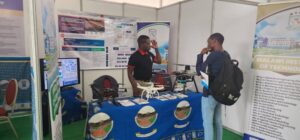
MUST pavilion at the previous AGM in Namibia
* Set to join around 175 member universities from across 40 countries in Africa to be hosted by Botswana University of Agriculture & Natural Resources (BUAN) in collaboration with the Government of Botswana
* From December 1-5 under the theme; ‘Positioning Africa’s universities and the higher education sector to effectively impact development processes on the continent’
By Duncan Mlanjira
Malawi University of Science & Technology (MUST) will attend Regional Universities Forum for Capacity Building in Agriculture (RUFORUM) annual general meeting (AGM) that serves as a platform for strategic dialogue and collective action to strengthen the role of African universities in delivering sustainable development outcomes.

Advertisement
In a statement, RUFORUM indicates that MUST will join around 175 member universities from across 40 countries in Africa at the AGM to be hosted by Botswana University of Agriculture & Natural Resources (BUAN) in collaboration with the Government of Botswana from December 1-5 — under the theme; ‘Positioning Africa’s universities and the higher education sector to effectively impact development processes on the continent’.
It is expected to bring together over 500 participants including university leaders, policymakers, development partners, private sector actors, young innovators, students and researchers from across Africa and around the world.
RUFORUM indicates that activities will be focus on four sub-themes, that include:
‘Strategic partnerships for growth: Building bridges for the future’
* The AGM participants are expected to analyse how collaborations could be optimised to support university mission and development priorities delivery, as well as mobilise and rationalise resources, promote knowledge transfer, and address shared contemporary challenges.
* This will include multilateral and bilateral meetings first at South-South collaborations such as Africa-Africa, Africa-China, and Africa-New Zealand. It will also look at North-South collaborations such as Africa-EU, and Africa-North America.
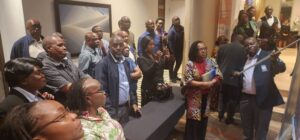
The AGM in Namibia
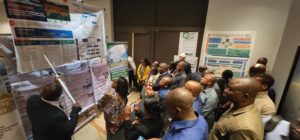
‘Science for development: Generating contemporary and relevant solutions at scale’
* The meetings will explore opportunities for strengthening science and innovation capacities of African Universities.
* Three key sub activities under this sub-theme include, first building university-led strategic partnerships for research, training and development; second a scientific conference; thirdly translating science into development i.e. market transitions for science solutions by enhancing scaling of best practices, business and jobs creation, entrepreneurship, agribusiness and employment, start-up business incubation and communicating science for development impact among others.
* Digital advances for market transitioning and value chain support; hackathons and investor pitch sessions will also be held for upcoming young entrepreneurs. Case studies of successful science-driven businesses that bridge the gap between research institutions and agricultural communities will be shared.
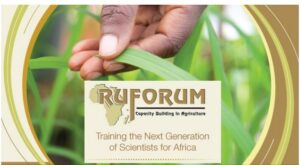
‘Capacity sharing to train the next generation of leaders in agri-food systems transformation’
* This is informed by the realisation that the second decade of the African Union Agenda 2063 (STYIP) is underpinned by effective science and policy driven agendas that are multi sectorial in nature.
* This conference sub-theme will explore how cooperative capacity development approaches might transcend continental disparities in expertise, facilities, and innovation.
* Emerging platforms and models such as digital networks and open science platforms for improving access to learning and research infrastructure, joint research and academic mobility programmes that harmonise competencies and foster cross-border learning, and regional centres of excellence — and thematic consortia that consolidate talent and infrastructure will be examined for scaling and resourcing.
* Vice-Chancellors’ Forum will discuss strategies to enhance capacity sharing among universities within countries, and between sub-regions to support the implementation of policy frameworks such as STYIP, STISA, and CAADP 2026-2035.

Advertisement
‘RUFORUM governance meetings’
* This 4th sub-theme is where RUFORUM as a statutory body, governance organs meet at least once a year to review the reports and progress of RUFORUM and guide the organisation in mission delivery.
* The AGM is the supreme decision-making organ, which guides the overall orientation of RUFORUM’s mission and programmes. It brings together both core and associate members of the network.
* Under this sub-theme, key meetings such as the RUFORUM Annual General Assembly, Principals and Deans Committee meetings as well as the other governance meetings will be held.
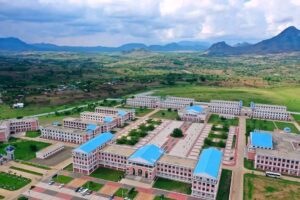
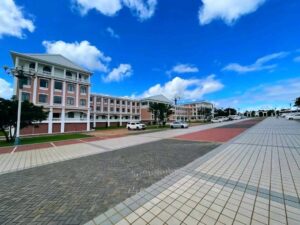
MUST Campus
The statement quotes RUFORUM Executive Secretary, Prof. Patrick Okori, as saying: “Universities are central to Africa’s development and by focusing on collaboration, science, and skills, this year’s AGM will help shape the future of higher education in Africa to be more responsive, inclusive, and impactful.”
MUST’s TAGDEV 2.0 program coordinator, Dr. Petros Chigwechokha said by participating at such an event, MUST stands to benefit in many ways, saying: “We are expecting to showcase what we are doing in Malawi and also appreciate what colleagues across Africa are doing — and in so doing, there will be exchange of ideas and knowledge.
“We will also have an opportunity to establish collaborations an partnerships with universities and research institutions that we have common interests,” he said — adding that apart from the TAGDEV 2.0 program, MUST is also running the AgrGrow project and has benefitted from a number of RUFORUM initiatives such as exchange visits and scholarships.



Advertisement
